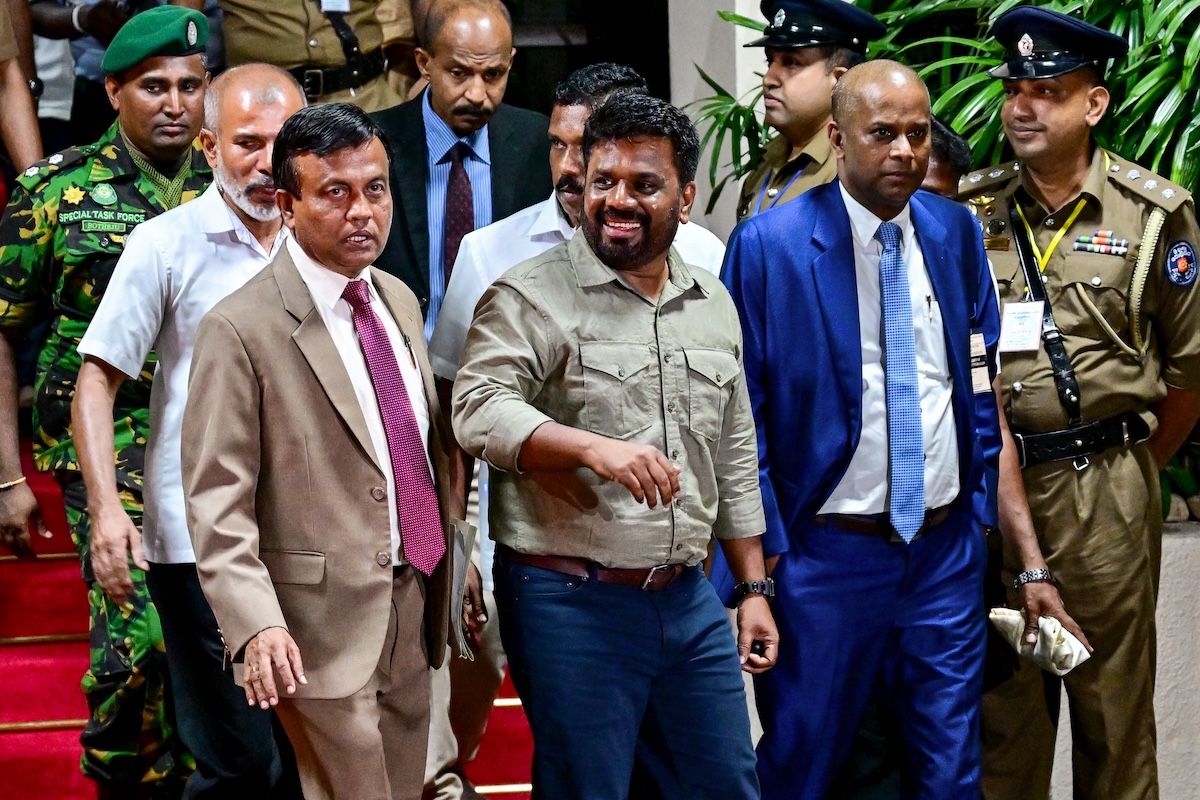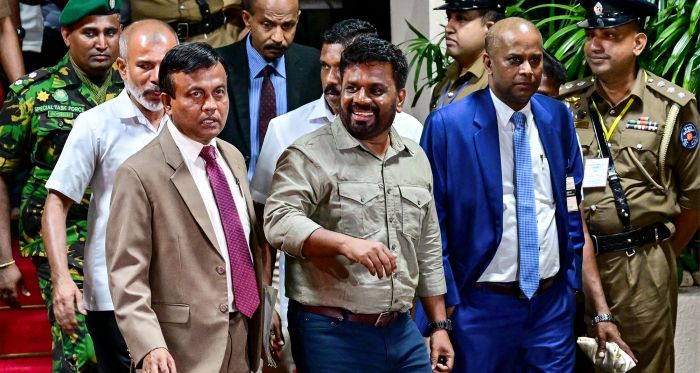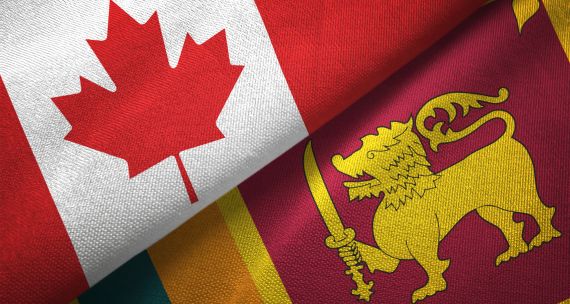The Takeaway
Sri Lanka's presidential election on September 21-22 marked a significant shift away from the country’s entrenched political dynasties, with the election of Anura Kumara Dissanayake, leader of the Janatha Vimukthi Peramuna (JVP), signalling an appetite for change amid an ongoing economic crisis. Dissanayake has promised economic revitalization, which presents potential opportunities for Canada and other Indo-Pacific partners.
However, his approach to foreign policy, especially his attempts to balance relations with India and China, will be crucial. The new president will face hurdles in economic recovery and fostering reconciliation with minority communities.
In Brief
- Dissanayake was elected as part of a coalition called the National People’s Power (NPP), which, while leftist in its orientation, still softens the JVP's extreme Marxist positions, appealing to voters with its anti-corruption platform and focus on lifting up the lower class.
- He won with 44 per cent of the votes, defeating centre-left runner-up Sajith Premadasa, who secured 34 per cent. The election reached a second round of counting, as neither candidate achieved the initial threshold of 50 per cent plus one vote.
- Voter turnout was 76 per cent, lower than the 83 per cent voter turnout in the previous election in 2019, but reflective of strong public engagement.
- Dissanayake has pledged to renegotiate Sri Lanka’s US$2.9-billion International Monetary Fund (IMF) bailout package, which was initially agreed upon in March 2023 following a foreign exchange shortage that led to crippling inflation and widespread protests in 2022.
- The election results reveal a deep divide between Sri Lanka's majority Sinhalese and minority Tamil and Muslim populations, with Dissanayake dominating Sinhala-majority areas and Premadasa performing well in Tamil-majority districts.
Implications
Campaign promises on the economy may be hard to keep. While Dissanayake’s populist promises to tackle corruption, renegotiate the IMF bailout, and reform state institutions struck a chord with voters disillusioned by the political elite, his ability to deliver on these promises remains uncertain. His plans to reduce income taxes, which doubled under the previous government, and cut sales taxes on essentials like food and medicine could delay the delivery of crucially needed funding and complicate debt-restructuring efforts. His dissolution of parliament on September 24 and call for snap elections on November 14 (almost a year early) could also hamper economic recovery. With limited political support and uncertainty surrounding bondholder agreements, the timeline for implementing reforms is now unclear. Nevertheless, the IMF has expressed willingness to work with Dissanayake.

The results will reverberate regionally. Dissanayake's government is set to reshape Sri Lanka's foreign policy, including its complex ties with India and China. Generally seen as pro-China, Dissanayake's administration may attract new Chinese investment; Beijing already expressed interest in collaborating on development and the Belt and Road Initiative following the new president’s swearing-in.
However, the painful legacy in Sri Lanka of excessive loans from China — Colombo’s largest bilateral lender — has turned such funding promises into a cautionary tale. Whereas India was able to gain influence during the previous administration, through US$4 billion in aid following the 2022 economic crisis, Dissanayake has openly criticized Indian involvement in Sri Lanka’s infrastructure projects. Additionally, he has rejected suggestions to devolve power to Tamil-majority areas, aligning him with nationalist sentiments that are skeptical of India.
While previous administrations oscillated between pro-China and pro-India stances, Dissanayake has signalled a desire to prioritize Sri Lanka’s "best interests" over foreign influences. This pragmatic approach may lead him to seek a more neutral stance.
What’s Next
1. Bridging the ethnic divide
Dissanayake will need to navigate the delicate ethnic divide between the majority Sinhalese and minority Tamil and Muslim populations, which remains a core challenge in Sri Lanka’s fractured political landscape. Traditionally, Tamils have rallied behind specific parties representing their interests in northern and eastern Sri Lanka, but now, Tamil voters indicate that their allegiance is increasingly fragmented among various factions claiming to address their concerns. Although Dissanayake's support in Tamil-majority areas was limited, this recent election seems to have been contested more on economic issues than along ethnic lines. However, the historical animosity stemming from the JVP's past anti-Tamil stance complicates the path to reconciliation.
2. Opportunities for Canadian engagement
For Canada, with its focus on development, democracy promotion, and sustainable investment in the Indo-Pacific, Sri Lanka’s political transformation presents noteworthy opportunities, albeit amid a complex backdrop. Dissanayake has actively rallied support among the Sri Lankan diaspora, particularly in Canada, where around 200,000 individuals of Sri Lankan descent reside. He recently met Canadian High Commissioner Eric Walsh in Colombo and, in March 2024, held rallies in Toronto and Vancouver to engage the community on his vision of uniting Sri Lanka's diverse cultures. As Dissanayake navigates internal economic reforms and the potential re-evaluation of international partnerships, Canadian businesses may find openings in sectors such as renewable energy and infrastructure.
However, in 2023, Ottawa sanctioned four high-ranking Sri Lankan officials for alleged human rights violations during the country’s civil war, including two former presidents and two military officers, a move that prompted Colombo to accuse Canada of bowing to Tamil diaspora politics. The sanctions, seen by some Sri Lankan officials as an infringement on sovereignty and a potential impediment to post-war reconciliation, highlight the sensitivity of ethnic issues in bilateral relations. Canada’s strong Tamil diaspora will closely scrutinize how Dissanayake addresses ethnic and political reconciliation — an essential task considering the legacy of the 26-year civil war that ended in 2009 and the call for accountability in Canada’s 2022 Indo-Pacific Strategy regarding human rights violations during that period.
• Edited by Erin Williams, Senior Program Manager, and Ted Fraser, Senior Editor, APF Canada



